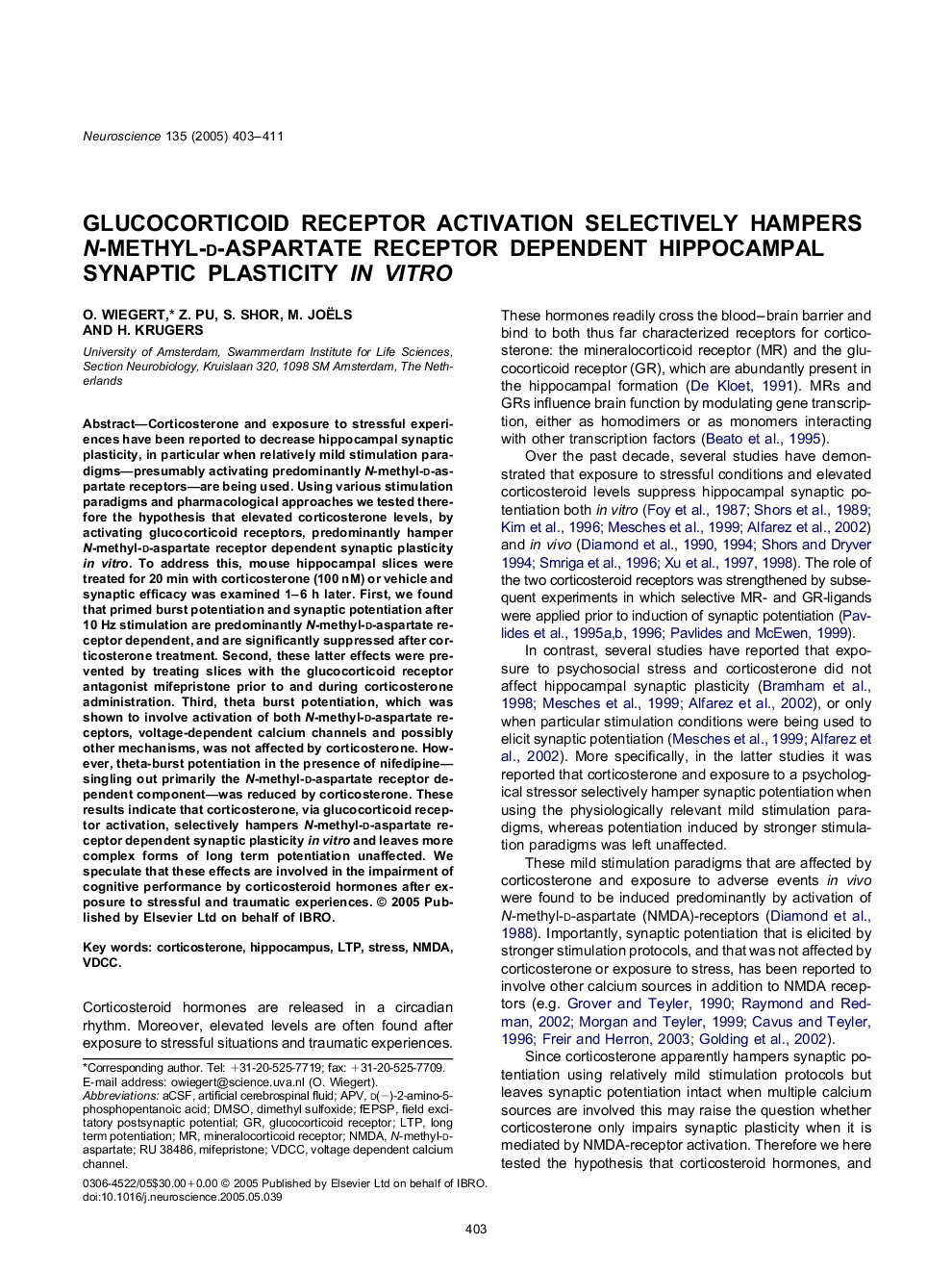| Article ID | Journal | Published Year | Pages | File Type |
|---|---|---|---|---|
| 9425463 | Neuroscience | 2005 | 9 Pages |
Abstract
Corticosterone and exposure to stressful experiences have been reported to decrease hippocampal synaptic plasticity, in particular when relatively mild stimulation paradigms-presumably activating predominantly N-methyl-d-aspartate receptors-are being used. Using various stimulation paradigms and pharmacological approaches we tested therefore the hypothesis that elevated corticosterone levels, by activating glucocorticoid receptors, predominantly hamper N-methyl-d-aspartate receptor dependent synaptic plasticity in vitro. To address this, mouse hippocampal slices were treated for 20 min with corticosterone (100nM) or vehicle and synaptic efficacy was examined 1-6 h later. First, we found that primed burst potentiation and synaptic potentiation after 10Hz stimulation are predominantly N-methyl-d-aspartate receptor dependent, and are significantly suppressed after corticosterone treatment. Second, these latter effects were prevented by treating slices with the glucocorticoid receptor antagonist mifepristone prior to and during corticosterone administration. Third, theta burst potentiation, which was shown to involve activation of both N-methyl-d-aspartate receptors, voltage-dependent calcium channels and possibly other mechanisms, was not affected by corticosterone. However, theta-burst potentiation in the presence of nifedipine-singling out primarily the N-methyl-d-aspartate receptor dependent component-was reduced by corticosterone. These results indicate that corticosterone, via glucocorticoid receptor activation, selectively hampers N-methyl-d-aspartate receptor dependent synaptic plasticity in vitro and leaves more complex forms of long term potentiation unaffected. We speculate that these effects are involved in the impairment of cognitive performance by corticosteroid hormones after exposure to stressful and traumatic experiences.
Keywords
Related Topics
Life Sciences
Neuroscience
Neuroscience (General)
Authors
O. Wiegert, Z. Pu, S. Shor, M. Joëls, H. Krugers,
